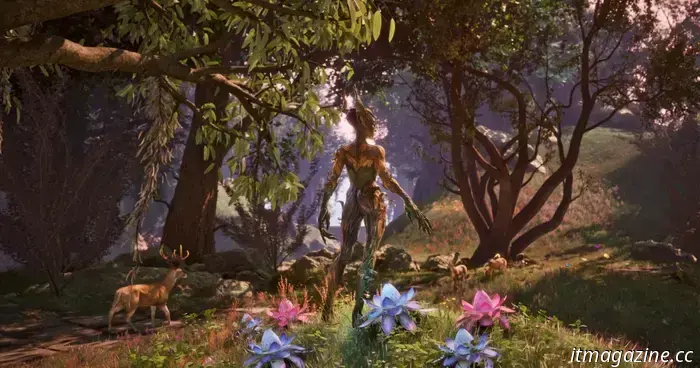
Following the release of Oblivion Remastered, my excitement for Skyblivion has grown even greater.
This week, Bethesda surprised fans (especially those not keeping up with rumors) with the unexpected release of The Elder Scrolls IV: Oblivion Remastered. This project honors the 2006 RPG classic by providing an Unreal Engine upgrade and incorporating a few thoughtful quality of life enhancements. It is, in a way, a significant revamp yet retains the essence of the original game, filled with the same endearing quirks that have inspired YouTube compilations for many years. For many enthusiasts of the original title, it will likely serve as a definitive remake that offers a final perspective on a classic.
However, this will not be the last version of Oblivion we encounter. For over a decade, a devoted group of fans has been developing a full-scale remake of Oblivion within Skyrim, known as Skyblivion. Although it may appear that Bethesda has undercut that project, I find myself more intrigued by it now, especially after the less ambitious Oblivion Remastered.
Anyone who has tracked the project since 2012 can attest to the challenges faced on the way to Skyblivion. The project is entirely spearheaded by TESRenewal, a volunteer modding community that is undertaking this endeavor purely out of love for the game. While the task is certainly complex, it is straightforward: to recreate all of Oblivion in the engine of Skyrim: Special Edition. Each city, character, and quest is being meticulously redone by hand. While this is already a daunting challenge, it has proven to be even more difficult than one might expect, largely due to Bethesda’s history of updating Skyrim every few years, which has occasionally erased the team's progress. Nevertheless, TESRenewal has remained resolute, starting over each time with renewed determination rather than abandoning the project.
That development narrative has always made Skyblivion an engaging topic, but my perspective has shifted following the release of Oblivion Remastered. In contrast, Bethesda's official project is largely a conventional remaster that seems more like a strategic business move. Yes, it looks impressive and comes with some appreciated quality of life improvements, but it doesn't really inspire me to view Oblivion in a different light or cultivate a new appreciation for it. It’s a faithful remaster that serves as a decent reason to revisit an already stellar RPG, complete with most of its quirky bugs intact. Players could easily enjoy the 2006 version and mostly have the same experience, aside from a collection of attractive screenshots.
This leads me to question what I truly seek from a remake. My previous answer was that I wanted a remake to evoke the feelings I had when I first played the game, and Oblivion Remastered achieves that. However, as more game studios increasingly rely on projects like this to boost their financial standings, my view has evolved. Nowadays, I desire a remake to enhance my connection with a game. I want it to alter my perception or add a new dimension to my understanding of it. This is largely why I appreciate Square Enix’s divisive Final Fantasy 7 remakes. They boldly reinterpret the 1997 RPG and initiate a dialogue with the game rather than imitating its essence. I know individuals who strongly dislike Final Fantasy VII Rebirth and believe it misrepresents the source material, but I don't view that as a negative. It merely indicates that there is a new interpretation to discuss. Oblivion Remastered lacks this quality, and I imagine most long-time fans will find it agreeable without any strong feelings either way.
In contrast, Skyblivion adopts a much bolder stance that aligns more closely with what I now seek in a remake. It isn't merely focused on updating the original game to match modern standards through superficial graphical enhancements. Instead, it poses the question: What would Oblivion resemble if it were developed in Skyrim? This is a genuinely intriguing question. Skyrim has long been celebrated for transforming the modern open-world genre, but much of its foundational work was originally established in Oblivion. How would recreating the latter in the former's style highlight that reality? Will it feel entirely fresh, demonstrating how different these two games truly are, or will they appear similar, revealing a smaller gap between them? How will Oblivion’s historically buggy nature evolve in a new engine, and what implications will that have for our understanding of Bethesda's achievements when transitioning to Skyrim? These are questions that could significantly impact our appreciation of both games.
What excites me even more is that Skyblivion is inherently an act of profound reinterpretation. It presents The Elder Scrolls through the perspective of modders, a community that has always viewed the series as a malleable entity. This artistic vision is vastly different from what we see in Oblivion Remastered, which is crafted by a large studio aiming to reintroduce a critical piece of its history to a contemporary audience. The priorities of these two approaches are likely to differ greatly. One


Other articles
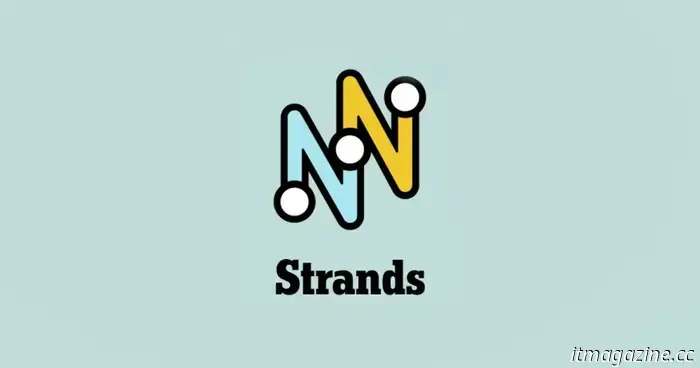 NYT Strands today: clues, spangram, and solutions for Saturday, April 26.
Strands offers a challenging twist on the traditional word search from NYT Games. If you're having difficulty and can't figure out today's puzzle, we've got assistance and clues for you right here.
NYT Strands today: clues, spangram, and solutions for Saturday, April 26.
Strands offers a challenging twist on the traditional word search from NYT Games. If you're having difficulty and can't figure out today's puzzle, we've got assistance and clues for you right here.
 Hold on! Take a look at these 3 fantastic movies that will be leaving Netflix by May 1.
Check out these three films that will be leaving Netflix by May 1. Our selections feature a delightful romantic comedy, an excellent animated follow-up, and a grand monster film.
Hold on! Take a look at these 3 fantastic movies that will be leaving Netflix by May 1.
Check out these three films that will be leaving Netflix by May 1. Our selections feature a delightful romantic comedy, an excellent animated follow-up, and a grand monster film.
 If you enjoyed Havoc, check out these three action films on Netflix.
Tom Hardy's Havoc is the newest original film available for streaming on Netflix. If you enjoyed Havoc, consider watching these three action films.
If you enjoyed Havoc, check out these three action films on Netflix.
Tom Hardy's Havoc is the newest original film available for streaming on Netflix. If you enjoyed Havoc, consider watching these three action films.
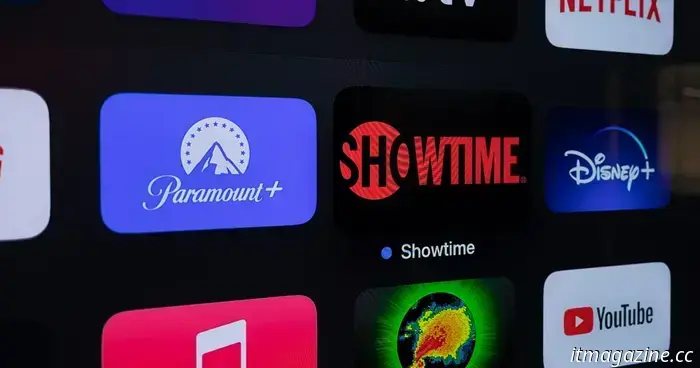 Paramount Plus free trial: Is it possible to stream for free in 2025?
We explore all the possibilities for accessing Paramount Plus at no cost and how to secure the greatest deal.
Paramount Plus free trial: Is it possible to stream for free in 2025?
We explore all the possibilities for accessing Paramount Plus at no cost and how to secure the greatest deal.
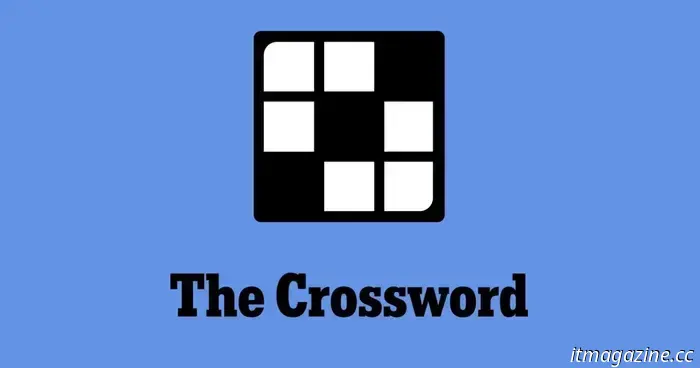 Answers for the NYT Crossword on Saturday, April 26.
The crossword puzzle in The New York Times can be challenging, even if it's not the Sunday edition! If you're facing difficulties, we're available to assist you with today’s clues and solutions.
Answers for the NYT Crossword on Saturday, April 26.
The crossword puzzle in The New York Times can be challenging, even if it's not the Sunday edition! If you're facing difficulties, we're available to assist you with today’s clues and solutions.
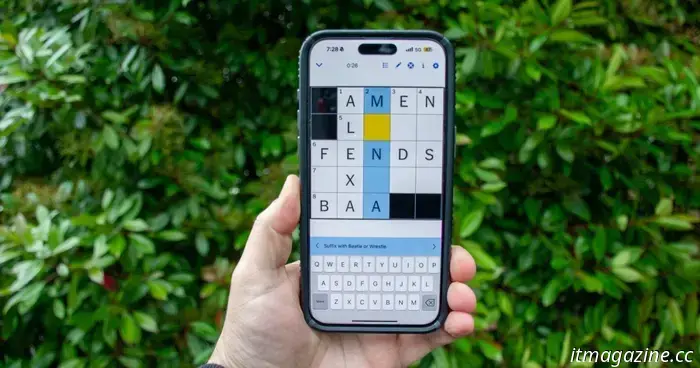 Answers for the Saturday, April 26, NYT Mini Crossword puzzle.
The NYT Mini crossword may be significantly smaller than a standard crossword, but it's still quite challenging. If you're having trouble with today's puzzle, we have the solutions for you.
Answers for the Saturday, April 26, NYT Mini Crossword puzzle.
The NYT Mini crossword may be significantly smaller than a standard crossword, but it's still quite challenging. If you're having trouble with today's puzzle, we have the solutions for you.
Following the release of Oblivion Remastered, my excitement for Skyblivion has grown even greater.
Oblivion Remastered has only increased my enthusiasm for Skyblivion, a fan-made remake of Oblivion created using Skyrim.
